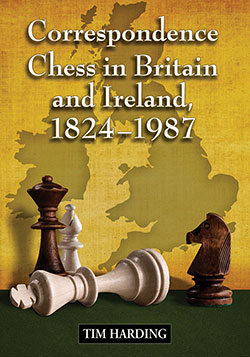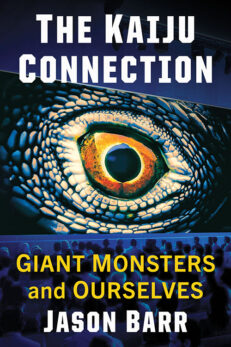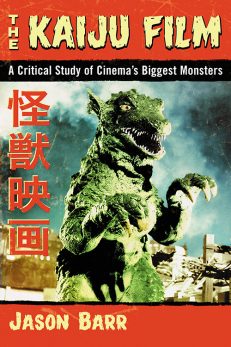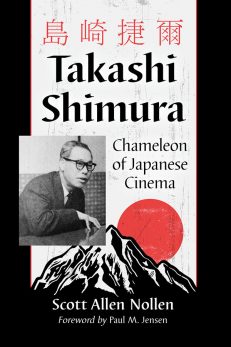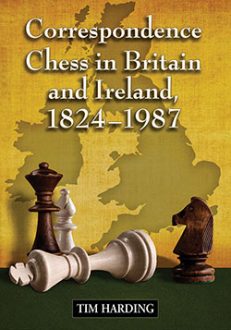Correspondence Chess in Britain and Ireland, 1824–1987
$49.95
In stock
About the Book
Exploring a bygone aspect of intellectual sport, this book details the history of British and Irish correspondence chess from the first formal match between Edinburgh and London in 1824 well into the 1980s, the most successful period in British correspondence chess. It traces the development of postal chess, including the growth of regional and national chess associations after World War I; the dawn of game-changing technologies such as the telegraph, the telephone, radio, and fax machines; the earliest transatlantic matches between the U.S. and the U.K.; the founding of the International Correspondence Chess Association in 1945; and the breaking of the Soviet monopoly on the world team championship in 1982 (the final act of the joint Great Britain team before Scotland and Wales obtained separate membership in the International Correspondence Chess Federation). Appendices list tournament champions; I.C.C.F. title holders; known club matches; and interesting excerpts from rules and other documents. Extensive notes, bibliography and indexes.
About the Author(s)
Bibliographic Details
Tim Harding
Format: softcover (7 x 10)
Pages: 439
Bibliographic Info: 53 photos, tables, appendices, notes, bibliography, indexes
Copyright Date: 2011
pISBN: 978-0-7864-4553-0
Imprint: McFarland
Table of Contents
Preface and Acknowledgments 1
Abbreviations 6
Annotation Symbols 6
1. Capital Letters: Edinburgh versus London, 1824–1828 7
2. Heyday of the Inter-Club Matches 28
3. Penny Post and Private Matches 50
4. Moves Over the Wires: Chess Adopts Technology 64
5. The Earliest Postal Tournaments, 1853 to 1870 78
6. Changing Times: The 1870s and 1880s 95
7. “A Battle at Long Range”: The United Kingdom versus the United States, 1877–1881 114
8. The Growth of Tournaments, 1870 to 1897 127
9. Scottish Correspondence Chess to 1918 161
10. Irish and Welsh Correspondence Chess to 1918 177
11. The English Scene, 1890 to 1918 195
12. From One War to the Next, 1918 to 1939 222
13. Correspondence Chess During World War II 246
14. International Revival, 1946 to 1951 261
15. Domestic Competitions, 1946 to 1970 273
16. Crisis and Resolution: Britain and the International
Correspondence Chess Federation, 1951 to 1971 294
17. The Home Front: The 1970s and 1980s 308
18. Growth and Success, 1972 to 1982 330
19. Becoming World Champions 343
Appendix I. Matches Between Clubs 355
Appendix II. Lists of Champions 365
Appendix III. Excerpts from Rules and Other Documents 375
Appendix IV. British and Irish Holders of I.C.C.F. Titles 386
Chapter Notes 389
Select Bibliography 409
Index of Images 413
Index of Opponents 413
Index of Openings by Name 415
Index of Openings by ECO Code 415
General Index 416
Book Reviews & Awards
Finalist, Book of the Year—English Chess Federation
“the book is a real work of art, the author found the right measure in description, in the selection of the most notable chess events and inclusion of the most attractive or most important correspondence games…splendid…warmly recommend”—Quarterly for Chess History; “this mammoth work is exhaustively researched and traces the history of British and Irish chess from it beginning right up until the Internet age. Highly recommended”—IM John Donaldson (JeremySilman.com); “excellent tome…heartily recommended”—British Chess Magazine; “very well written…fascinating…highly recommended”—Manchester Chess Federation; “excellent…valuable”—Chess Life; “recommend…this is more than a book, it is a historical gem…Do yourself a big favor and buy it…clearly written with much effort”—carlsplanet.co.uk; “excellent…worth every penny…strongly recommend”—British Correspondence Chess Association; “a richly enjoyable book…a must-keep”—Iain Mackintosh, Scottish Correspondence Chess Association.

